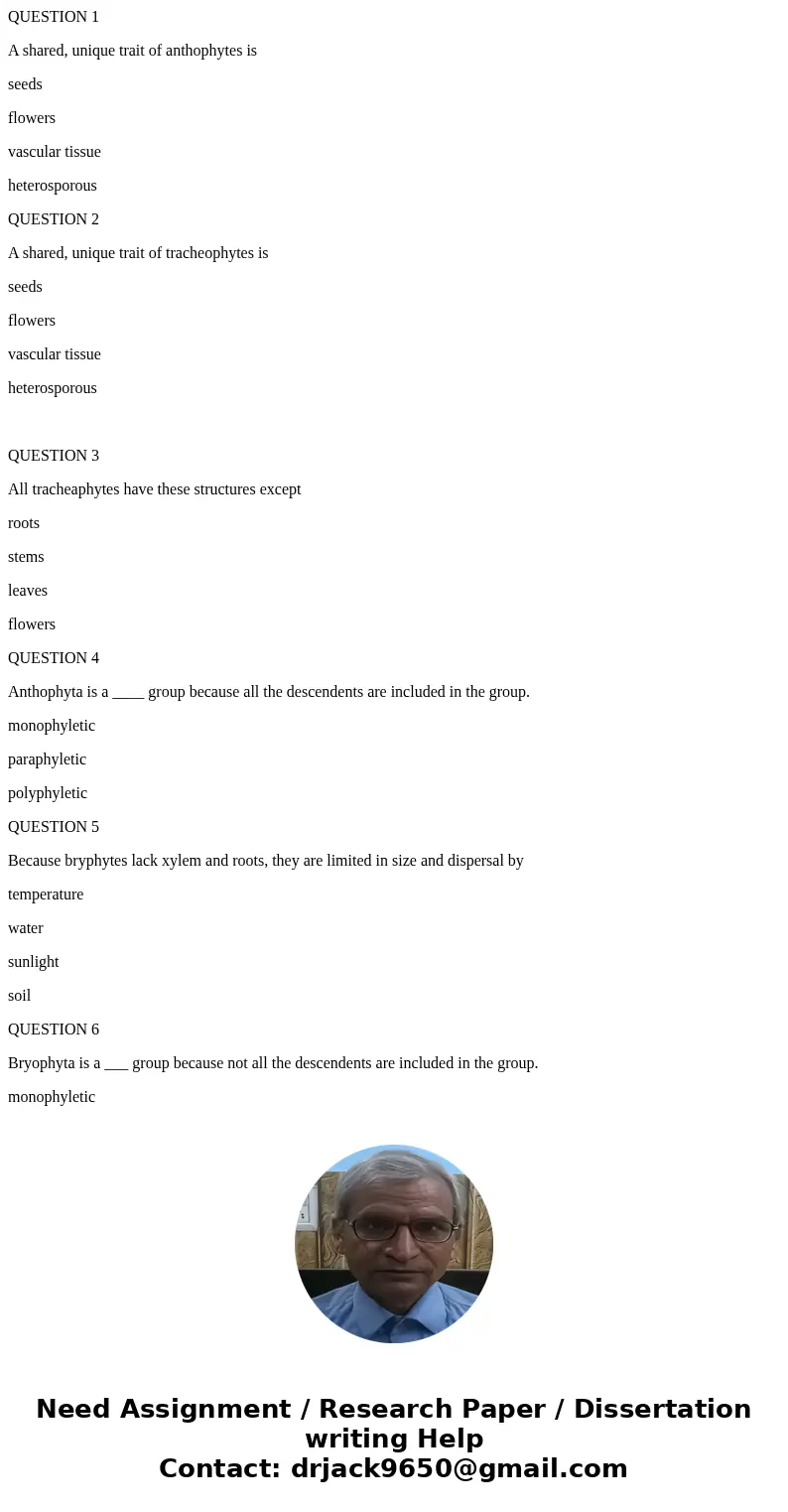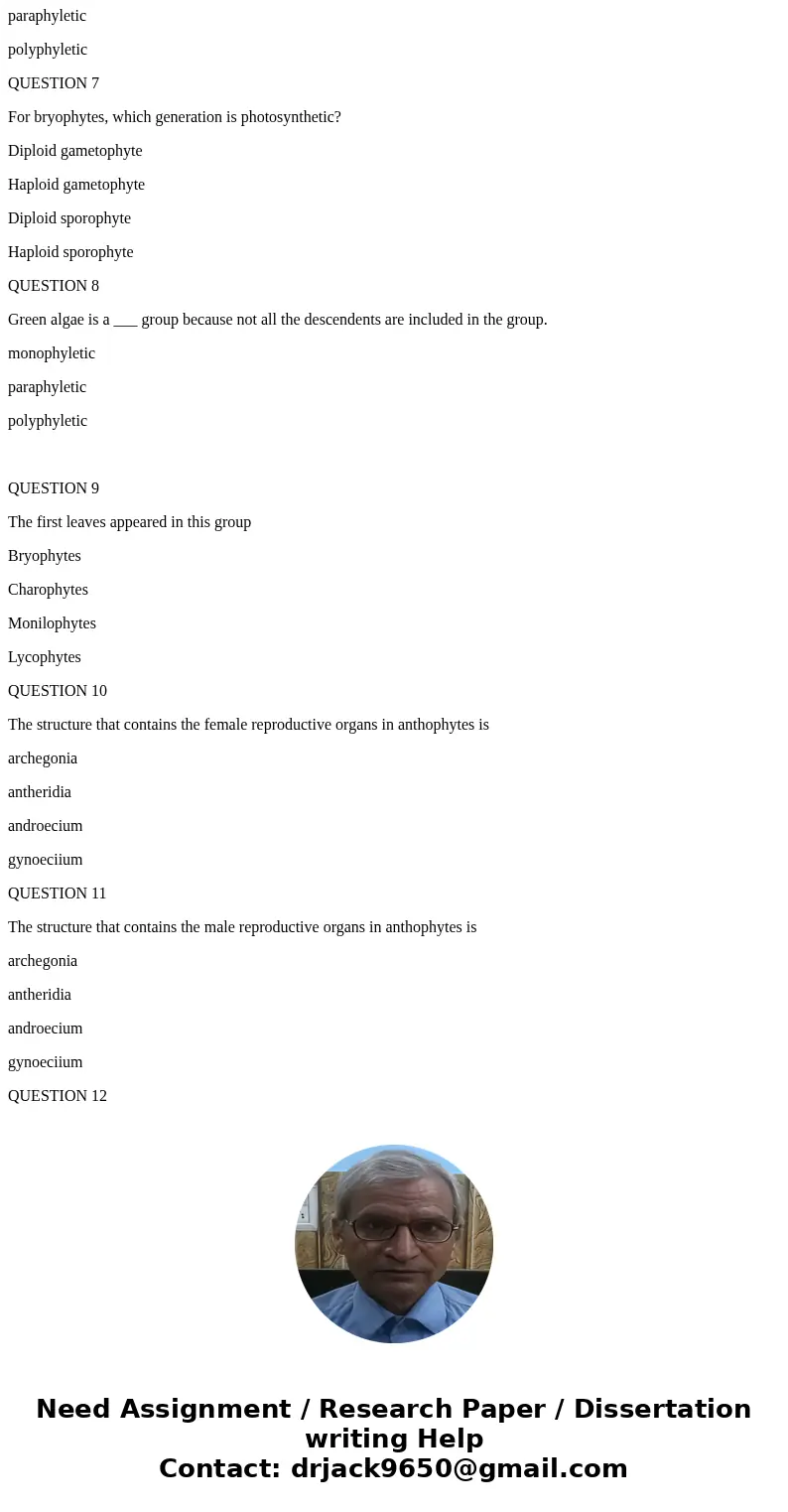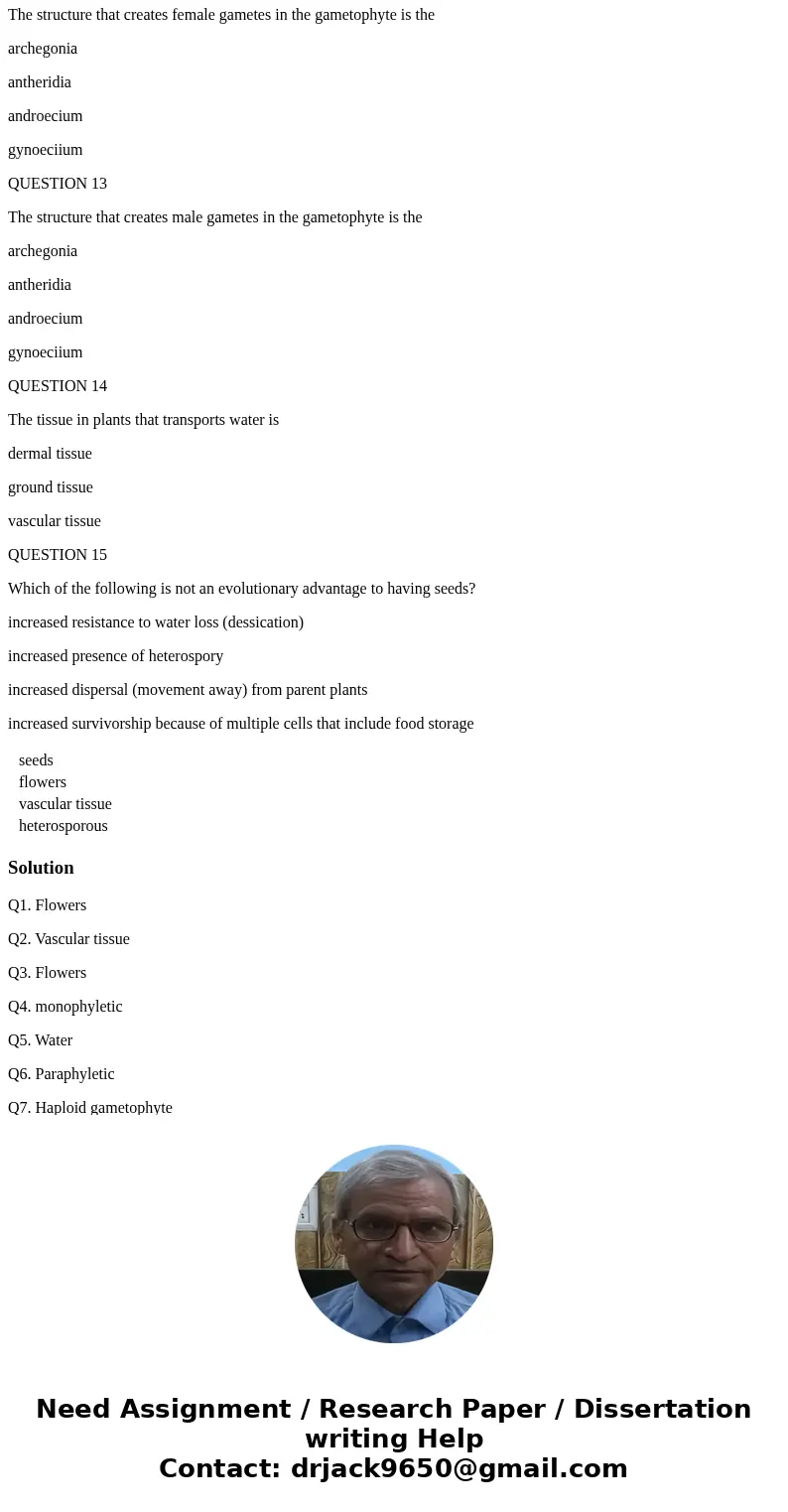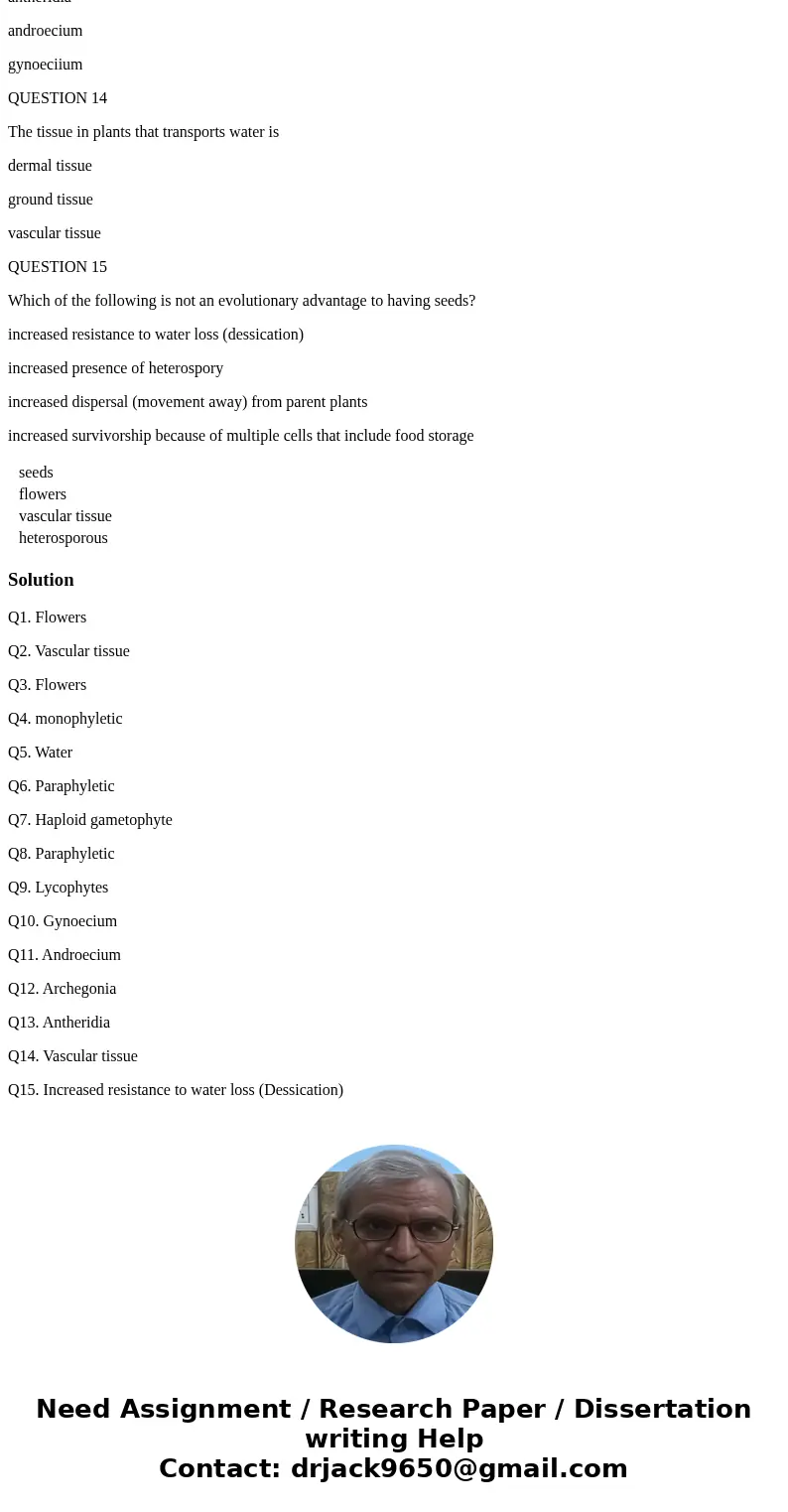QUESTION 1 A shared unique trait of anthophytes is seeds flo
QUESTION 1
A shared, unique trait of anthophytes is
seeds
flowers
vascular tissue
heterosporous
QUESTION 2
A shared, unique trait of tracheophytes is
seeds
flowers
vascular tissue
heterosporous
QUESTION 3
All tracheaphytes have these structures except
roots
stems
leaves
flowers
QUESTION 4
Anthophyta is a ____ group because all the descendents are included in the group.
monophyletic
paraphyletic
polyphyletic
QUESTION 5
Because bryphytes lack xylem and roots, they are limited in size and dispersal by
temperature
water
sunlight
soil
QUESTION 6
Bryophyta is a ___ group because not all the descendents are included in the group.
monophyletic
paraphyletic
polyphyletic
QUESTION 7
For bryophytes, which generation is photosynthetic?
Diploid gametophyte
Haploid gametophyte
Diploid sporophyte
Haploid sporophyte
QUESTION 8
Green algae is a ___ group because not all the descendents are included in the group.
monophyletic
paraphyletic
polyphyletic
QUESTION 9
The first leaves appeared in this group
Bryophytes
Charophytes
Monilophytes
Lycophytes
QUESTION 10
The structure that contains the female reproductive organs in anthophytes is
archegonia
antheridia
androecium
gynoeciium
QUESTION 11
The structure that contains the male reproductive organs in anthophytes is
archegonia
antheridia
androecium
gynoeciium
QUESTION 12
The structure that creates female gametes in the gametophyte is the
archegonia
antheridia
androecium
gynoeciium
QUESTION 13
The structure that creates male gametes in the gametophyte is the
archegonia
antheridia
androecium
gynoeciium
QUESTION 14
The tissue in plants that transports water is
dermal tissue
ground tissue
vascular tissue
QUESTION 15
Which of the following is not an evolutionary advantage to having seeds?
increased resistance to water loss (dessication)
increased presence of heterospory
increased dispersal (movement away) from parent plants
increased survivorship because of multiple cells that include food storage
| seeds | ||
| flowers | ||
| vascular tissue | ||
| heterosporous |
Solution
Q1. Flowers
Q2. Vascular tissue
Q3. Flowers
Q4. monophyletic
Q5. Water
Q6. Paraphyletic
Q7. Haploid gametophyte
Q8. Paraphyletic
Q9. Lycophytes
Q10. Gynoecium
Q11. Androecium
Q12. Archegonia
Q13. Antheridia
Q14. Vascular tissue
Q15. Increased resistance to water loss (Dessication)




 Homework Sourse
Homework Sourse